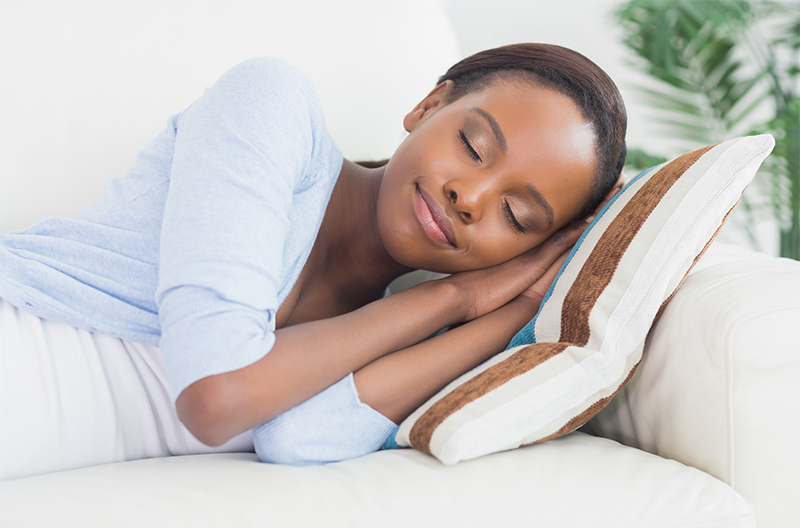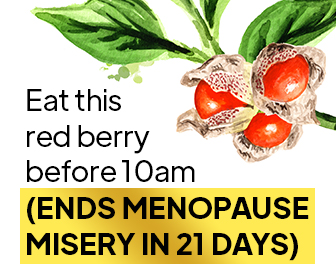Sometimes, there are just not enough hours in the day. Staying on top of work and hobbies in your fast-paced life may seem impossible, causing you to stay awake at night and feel tired during the day. While surviving on five cups of coffee a day might seem like a solution right now, there is surely a better option to consider. Believe it or not, napping is a great way to refocus and reinvigorate yourself for the rest of the day’s activities. But napping brings to light the question: how long should I nap?
That’s an important question to answer. Knowing the answer will help you to avoid the negative implications of naps you might have experienced before. You know what we’re talking about. That post-nap guilt for sleeping the afternoon away, and confusion and heaviness in your head after going too far into your deep sleep cycle. These are common, yet fixable, repercussions of napping mistakes that anyone can make.
We like to think of naps as an art form, even a tool for self-care! The key is, you have to be aware of how to use this tool for good instead of evil. We’ll go through some of the best tips for napping without regret. Additionally, we’ll dive into the facts around napping, and help you understand what science says about these mid-day delights.
Are Naps Good for You?

Research has been a bit wishy-washy about whether or not naps are good for adults. Some misleading studies say that naps correlate with mortality risk.[1] Naturally, that steers some people clear from napping. However, there’s no reason to fear for your life if you’re generally healthy. More conclusive studies prove that napping in healthy adults is safe and even beneficial when kept under 30 minutes.[2]
When asking are naps good for you in terms of productivity, the answer will vary per person. So, you’ll need to test out which nap type (aka knowing the answer to “how long should I nap”) works best for you. We’ll learn more about this a bit later. For now, let’s check out a few ways that naps can be good for you.
Benefits of Napping
Napping as an adult can have some positive outcomes when done right. Here are some benefits of napping that you can take advantage of.
1. Increased productivity

If your motivation for daytime naps stems from your lack of focus in the afternoon hours, we have some good news for you. Having a 10-minute nap when your eyelids start to droop can boost your alertness and productivity.[3]
These short naps give your brain some rest time and allow you to mimic sleep without going into your deep sleep cycle or causing harm to your night later on. So after a nap like this, you’ll feel more focused to finish the workday strong, or pop back up and get to the gym before dinner.
2. Psychological gains
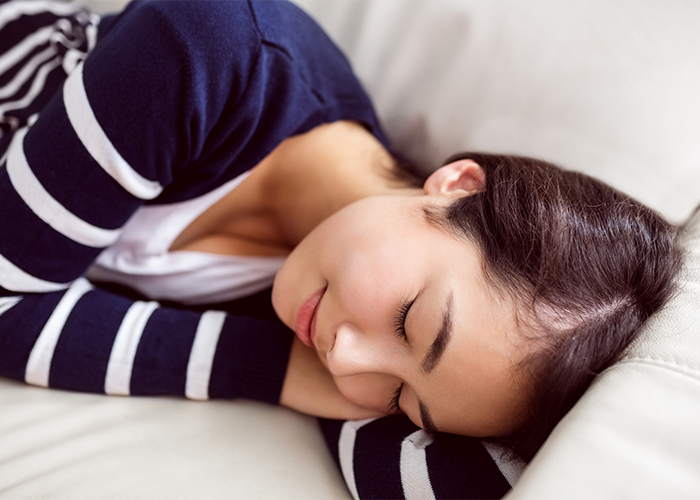
Life is stressful, we don’t need to convince you of that fact. Rather than let the hardships of the day wear you down mentally and physically, take some time for yourself to rejuvenate.
Naps are a way for you to take care of your mind and body. When you nap properly, you’ll wake up feeling like a weight is lifted from your back, leaving you stress-free and invigorated. This fresh outlook and increased alertness will boost your mood for the day — and who doesn’t need an emotional boost now and then?
Tip: Make the most of your naps by combining sleep with another quick form of self-care. Try inhaling some calming essential oils before your nap or practicing deep breathing exercises.
3. Improved heart health
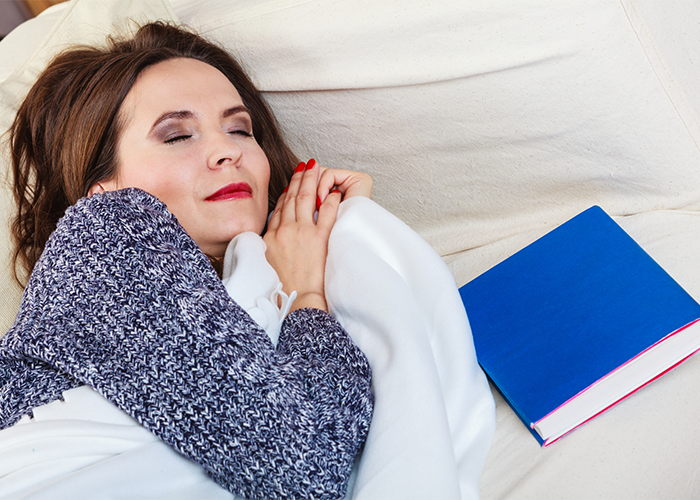
Stress and other factors can impair your cardiovascular system (heart and circulation). Ignoring what’s happening to your body internally can have negative consequences.
There are many ways you can care for your cardiovascular system, and one super easy solution is napping. One study explains that daytime napping results in lower artery pressure and therefore less stress for the heart.[4] As you age, taking care of this key organ gets more important. So don’t neglect your heart, give it the rest it needs through napping.
How Long Should I Nap? Scientific Findings About the Best Nap Length
The most important question to ask when entering the napping world is “how long should I nap?”. No one wants to ruin the rest of the day with a bad nap. Or even worse, accidentally sleep until bedtime and throw off your entire schedule. With conflicting evidence out there about what amount of time is best for daytime naps, you’ll feel confused and even more tired after trying to find the answer. Luckily, we’ve found the truth about the best nap length based on science. Let’s explore the answers to this question and find the length of time that works best for you.
1. The short nap: 10-20 minutes
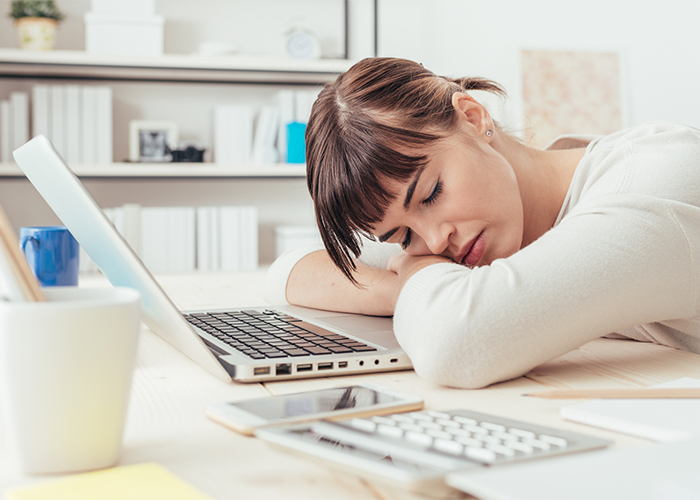
So what is the best nap length? A 10-20 minutes nap will probably be the best one-size-fits-all solution for most people wanting an afternoon pick-me-up. It’s ideal for your super busy days. Getting between 10-20 minutes of rest on these days is actually a huge plus for your productivity and stamina. Research shows that naps of this length immediately show an increase in alertness directly after waking up.[5] That improved state of brain function can last up to an hour after your nap as well.
That’s because these short naps allow you to rest in light sleep. Your body doesn’t enter the deep REM sleep cycle where you might feel groggy and even less awake afterward. Naps like this can fit right into your routine, so you can make it a regular occurrence on the days of the week you know you constantly need some extra juice to power through.
2. The one-hour nap: 30-60 minutes
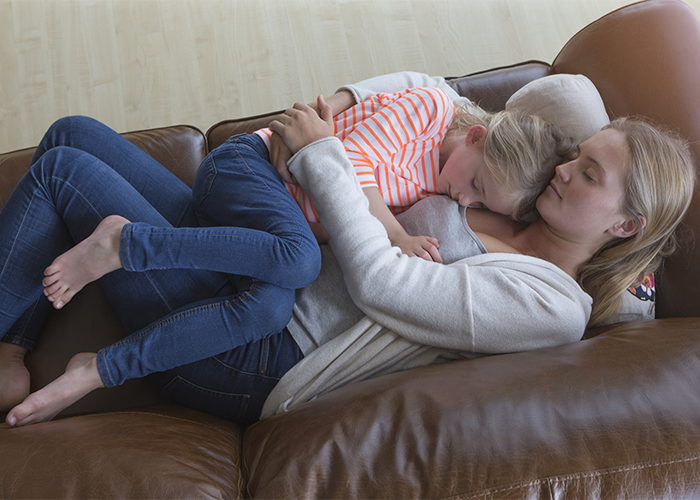
This nap is also known as the “oops I slept way longer than I planned” nap. While it might seem like a logical length of time to reserve for a nice, restful sleep, the opposite is actually true. You see, scientists say that naps of this duration are the worst ones for sleep inertia.[6]’[7] This is because your body slips into the REM sleep cycle, but doesn’t finish it.[8] So you’re waking up mid-cycle, causing your brain a ton of confusion and a really long recovery time.
Naps of this length cause sleep inertia, which is that delayed-response, groggy feeling you might have after an accidental nap of this length.[9] Sleep inertia can be dangerous if your job requires you to nap and then perform a high-skill task. For example, if you work nights as an EMS or even if you’re a doctor on a 24-hour shift.
Research shows sleep inertia as a cause of a few types of fatal accidents, driving included.[10] So, don’t learn your lesson the hard way and try to steer clear of naps between 30-60 minutes. If you do experience sleep inertia, give yourself proper time (about 45-minutes and in some cases up to four hours) to fully wake up before doing anything that you should be fully alert for.
Tip: Don’t expect to make the perfect formula for napping on your first try. It might take a few days of trial and error before you find the length of time and space that works the best for your personal naps. Remember, everyone is different and the key is to find what helps you best.
3. The long nap: 90-minutes

After learning about sleep inertia, you might feel scared to try napping for 90-minute intervals. But have no fear, this is actually a good amount of time to nap, according to research and evidence. A nap of about 90-minutes allows you to go through one full cycle of sleep.[11] This means you’ll touch down in REM deep sleep, but then wake up in the light sleep phase, avoiding any sleep inertia.
Not only that, but experiencing one full sleep cycle will allow you to catch up on some lost sleep and have long-term benefits too. Studies show that 90-minute naps can boost your memory and creativity.[12] So if you have some time on your hands and know you have a long day or shift ahead, try a longer nap to reset your day.
Why Do I Even Feel the Need to Nap?
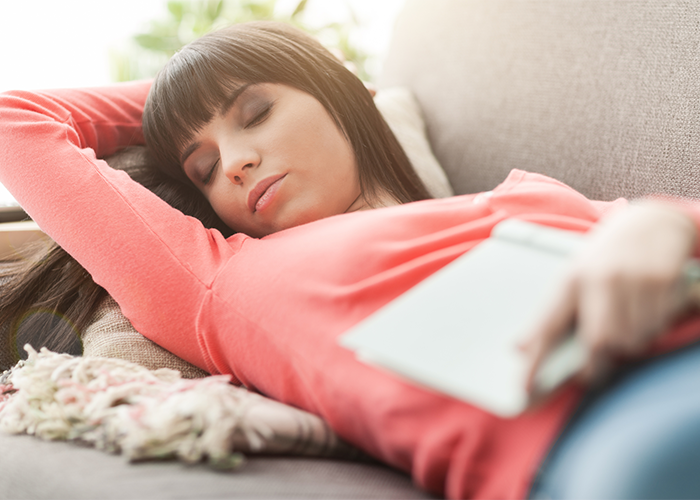
As adults, you might be wondering why you even need to nap. This question is valid because society has deemed napping as something for toddlers and lazy people. But don’t let this misinterpretation taint your view of napping. As you can see, napping can be incredibly beneficial for the standard, hard-working adult.
In fact, The National Centers for Disease Control and Prevention notes that one in three U.S adults don’t get enough sleep on their own.[13] This is where napping can come into play, helping you catch up on the missed rest your body and brain desperately need.
While this is the case for most adults, feeling the need to nap more than normal, or napping uncontrollably, can be a sign of a bigger health problem. Some sleep-related disorders like sleep apnea, insomnia, and narcolepsy can cause you to be tired throughout the day and feel no relief after naps. If you think you might be abnormal in your sleep patterns or excessive need to nap, talk to your doctor about what you can do to regulate and control a possible sleep disorder.
Fun Fact: Join the club of impactful people who believe in naps, including Winston Churchill, John F. Kennedy, Ronald Reagan, Napoleon, Albert Einstein, and Thomas Edison![14]
6 Tips for the Perfect Nap
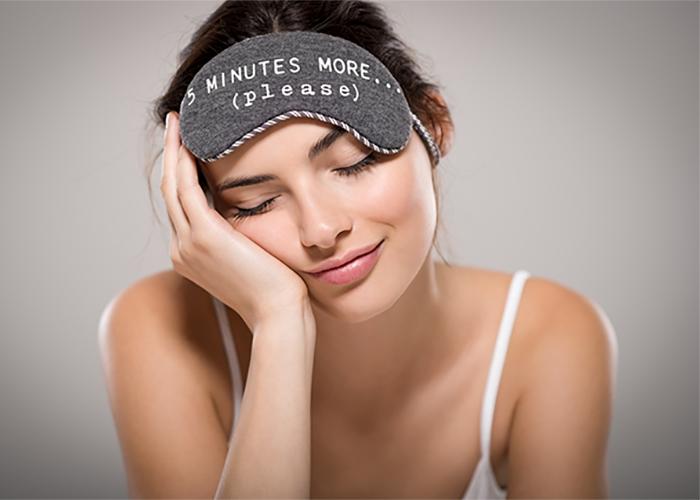
To get the most from your naps, you have to be aware of the general rules and pitfalls. Knowing exactly “how long should I nap” won’t ensure you have the best quality of sleep during that time. Each person is different in what works for them and helps them wake up refreshed. But here are some general tips for having the best nap possible.
Do
- Plan regular naps The more you nap, the more you’ll nail down the perfect system for yourself. Your body will remember to wake up after short naps of 10-minutes. Plus, you’re less likely to accidentally fall into REM sleep and sleep inertia. Also, building naps into your day as a healthy adult can increase your overall productivity time. So even though you might feel like your losing time when napping, the time you spend awake will be put to better use.
- Sleep in a quiet environment Just like when you lay down to sleep at night, your daytime naps also require a calm, non-stressful environment. Even though this might be hard to obtain this if you’re on the go, try to find a place to nap that is low on noise and activity. One option is closing your office door and popping in some earplugs. Feeling safe and calm is key to having a beneficial nap and not just wasting time with your eyes closed.
- Wake up and stimulate your body To avoid staying sleeping after you wake up, try to stimulate your body and mind with an activity to regain function fast. Drinking a glass of water can help your body wake up faster, as well as playing a quick game of Sudoku on your smartphone will work out your brain. Some light stretching when you wake up can also help jump-start your body back into alertness.
Don’t
- Nap too late in the day If your normal bedtime is around 11 pm but you take a nap at 8 pm, you could be throwing off your schedule. It’s best to keep naps away from your regular night sleeping hours. This way, you can utilize those post-nap productive hours. It’s not good to wake up and then force yourself to wind down just a few hours later. Typically, mid-afternoon (after lunch) is an ideal napping time.
- Nap too long As stated in the research above, napping for too long or without timing yourself can leave you feeling worse off than before. It’s important to find the best nap length for you in order to reap the benefits. To avoid the worst effects of sleep inertia, you can invest in a sleep app to wake you up at the perfect moment in your sleep cycle. Alternatively, trial and error what amount of time is best for you to wake up and feel your optimal self.
- Nap if you have trouble falling asleep If you have problems falling asleep at night, daytime napping might cause you more harm than good. Depending on the reason for your problems falling asleep at night, naps could make it harder. Instead, try to create a bedtime routine to calm yourself down each day. You can use essential oils for sleep or mindfulness techniques to help you fall asleep. This way, you’ll be able to get on a healthier routine and not rely on naps for the deep, restful sleep you should be getting at night.

Conclusion
After sifting through the research and expert tips above, we hope you’ve found an answer to questions “how long should I nap?” and “are naps good for you?”. Avoid feeling groggy and guilty post-nap and wake up to a rejuvenated new you that is ready to take on the day. Remember: with the craziness of your schedule and stresses of the day, a short nap might be the self-care that you need. Don’t deny yourself the pleasure, just do it consciously. Oh, and invest in a good eye mask.
References
- [1] https://academic.oup.com/aje/article/179/9/1115/2739197
- [2] https://journals.lww.com/co-pulmonarymedicine/Abstract/2006/11000/Good_sleep,_bad_sleep__The_role_of_daytime_naps_in.2.aspx
- [3] https://academic.oup.com/sleep/article/24/3/293/2750008
- [4] https://link.springer.com/article/10.1007/s12529-011-9150-0
- [5] https://academic.oup.com/sleep/article/24/3/293/2750008
- [6] https://www.ncbi.nlm.nih.gov/pmc/articles/PMC4763354/
- [7] https://onlinelibrary.wiley.com/doi/full/10.1111/j.1365-2869.2008.00718.x
- [8] https://www.sleep.org/articles/how-long-to-nap/
- [9] https://www.ncbi.nlm.nih.gov/pmc/articles/PMC5136610/
- [10] https://www.ncbi.nlm.nih.gov/pmc/articles/PMC5136610/
- [11] https://www.sleep.org/articles/how-long-to-nap/
- [12] https://www.sleep.org/articles/how-long-to-nap/
- [13] https://www.cdc.gov/media/releases/2016/p0215-enough-sleep.html
- [14] https://www.sleepfoundation.org/articles/napping

